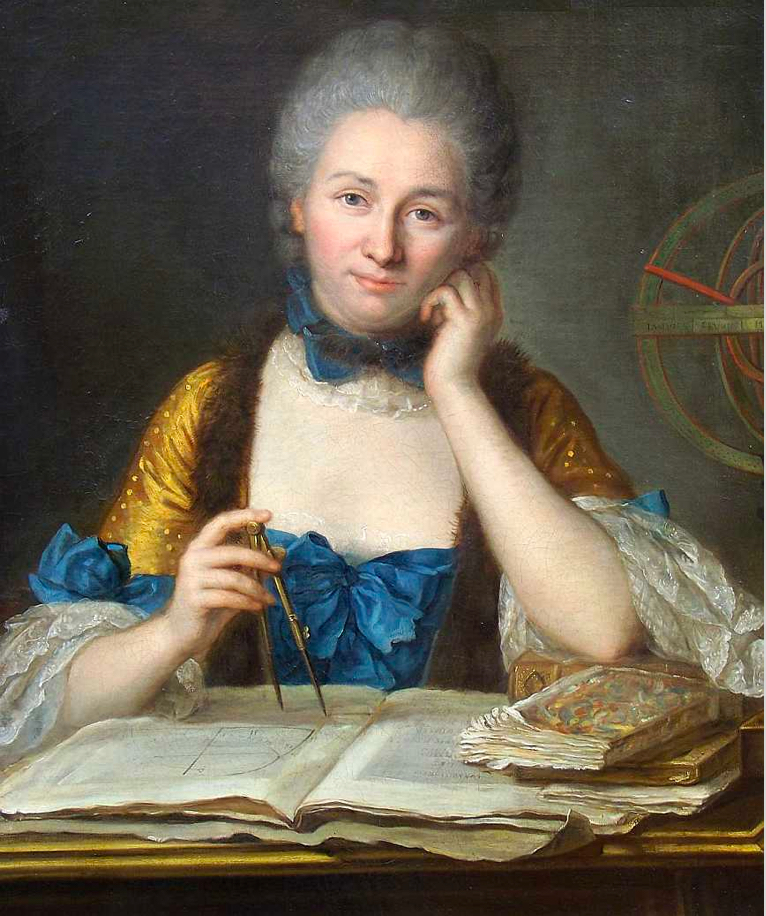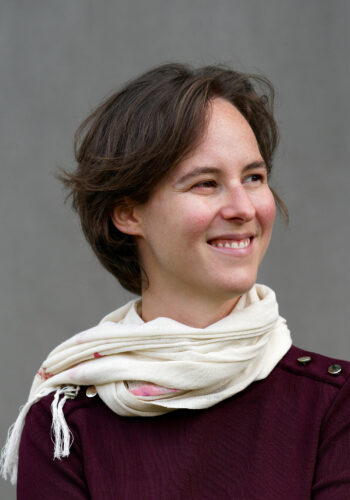Pourquoi la tech ?
Je me passionne pour la physique depuis l’adolescence. Découvrir que l’on peut décrire le monde de manière élégante, faire sens de ses intuitions et prédire ce que l’on observe avec précision, a été une révélation pour moi. Aujourd’hui, je savoure particulièrement l’aspect pluridisciplinaire de mon travail, à l’interface entre la physique, l’électronique, les sciences des matériaux, l’informatique et les neurosciences. Il y a tellement à apprendre et à imaginer dans ce sujet qu’on ne peut jamais s’ennuyer.
Votre parcours ?
J’ai fait le Magistère de Physique fondamentale à Orsay, l’actuelle Université Paris Saclay. J’ai fait mon Master 2 à l’Université de Cambridge au Royaume Uni puis suis revenue à Saclay pour mon doctorat. J’ai ensuite travaillé aux Etats-Unis, au National Institute of Standards and Technology. Depuis 2018, je suis chercheuse à Thales Reasearch & Technology, dans le labo mixte CNRS/Thales. Ce parcours m’a permis de découvrir d’autres cultures et créer des liens internationaux, ce qui m’a apporté énormément sur les plans personnel et professionnel. Mon unique regret serait de ne pas avoir fait des études plus pluridisciplinaires, ce qui est difficile en France.
Votre première expérience professionnelle dans la tech ?
Ma première expérience professionnelle était mon travail au laboratoire CNRS/Thales pendant mon doctorat. C’est là où j’ai pu découvrir le métier de chercheuse et toutes ses facettes, bien éloigné de la vision du grand public. Au-delà du cœur scientifique du métier, il y a toute une palette de compétences à acquérir : travail en équipe, gestion de projet, communication etc. Depuis peu, je suis amenée à encadrer des personnes et coordonner des projets internationaux : une nouvelle première expérience et aventure à suivre.
Vous faites quoi aujourd’hui et pourquoi ?
Je travaille sur le calcul neuromorphique. C’est-à-dire que je cherche à concevoir de nouveaux types d’ordinateurs, qui seraient inspirés du fonctionnement de notre cerveau. Plus spécifiquement, j’étudie comment les nanotechnologies peuvent réaliser des neurones artificiels. Cela permettrait de réduire la consommation énergétique de l’intelligence artificielle. Au-delà de cette application importante, c’est surtout un défi intellectuel passionnant !
Vos atouts pour ce poste ?
Bien sûr pour mon poste il faut des connaissances scientifiques très solides. Je pense que mes atouts scientifiques les plus importants sont ma capacité d’abstraction, ma compréhension profonde d’un sujet et ma capacité à voir comment démontrer quelque chose.
Au-delà de cela, je pense que mes compétences humaines sont primordiales pour mon succès professionnel. J’aime communiquer sur mon travail et le fais bien, quelle que soit l’audience, experte ou grand public. De plus, j’aime travailler en équipe et collaborer, je sais créer les liens humains qui permettent de réaliser de grandes choses ensemble.
Vos défis passés, vos ratés, vos grands moments de solitude ?
Pour être chercheuse, il faut être résiliente psychologiquement. En effet, l’énorme majorité du temps en recherche, ce que l’on cherche à faire ne fonctionne pas. Et quand on réussit enfin, on passe à l’étape suivante. Chacun de mes résultats importants a demandé plusieurs années d’échecs. Ensuite, il faut également convaincre la communauté scientifique, ainsi que le grand public, de l’intérêt des résultats obtenus. Pendant mon doctorat, certains de mes articles ont été refusés de nombreuses fois par les journaux scientifiques avant d’être publiés. Cela a été très difficile à vivre mais cela m’a appris à voir par moi-même la valeur de mon travail, et non d’attendre une validation extérieure. Cette qualité de résilience est également indispensable pour survivre en tant que femme dans la tech !
Vos meilleurs moments, les succès dont vous êtes fière ?
Aller à l’université plutôt qu’en école d’ingénieur était un choix courageux, dont beaucoup ont tenté de me détourner, et probablement ce dont je suis la plus fière dans mon parcours. C’était une formation merveilleuse, axée vers la recherche, avec des étudiants et enseignants passionnés.
En thèse, quand j’ai eu mon principal résultat expérimental, ce fut un moment merveilleux. L’expérience que je tentais de réaliser échouait depuis deux ans. Je suis très fière de m’être acharnée.
En ce moment je suis particulièrement fière du recul scientifique que j’ai pu prendre sur mon sujet de recherche et de ma capacité à transmettre cette vision aux autres, que ce soit le grand public, ma communauté scientifique, ou les personnes que j’encadre.
Des personnes qui vous ont aidée/marquée ou au contraire rendu la vie difficile ?
Malheureusement mon milieu professionnel est encore très misogyne et les épisodes de harcèlement sexiste et sexuel sont une réalité du métier. Heureusement, j’ai eu la chance d’être formée et soutenue par des personnes extraordinaires, Julie Grollier et Damien Querlioz, qui ont encadré mon doctorat et m’ont tout appris du métier. Ce sont toujours des conseiller.es et ami.es importants pour moi. Mon chef aux US Mark Stiles et mon manager actuel Paolo Bortolotti sont également des soutiens précieux, qui m’ont donné des opportunités et toujours mise en avant.
Vos envies et défis à venir ?
Sur le plan scientifique, j’ai deux défis majeurs. L’un est plutôt fondamental et porte sur l’utilisation de la physique pour réaliser un réseau de neurones artificiel capable d’apprendre par lui-même, comme notre cerveau. L’autre est plus appliqué et porte sur la réalisation d’une puce microélectronique qui démontrerait le potentiel industriel des systèmes que j’étudie. Sur le plan humain, mon grand défi actuel porte sur l’encadrement et l’animation des échanges dans notre équipe.
Et vous faites quoi en dehors de votre travail ?
Je passe beaucoup de temps à parler avec mes ami.es proches, notamment de psychologie. Je dessine et fais de la peinture traditionnelle chinoise. Depuis peu j’ai commencé l’écriture créative. Je joue du piano. Je crois que beaucoup de chercheuses sont également artistes car il y a une forte dimension créative à notre travail.
Vos héroïnes (héros) de fiction, ou dans l’histoire ?
En grandissant je n’avais pas d’héroïne car on ne donne pas d’exemple de femmes, je suis contente de voir qu’il y a de plus en plus d’ouvrages jeunesse à ce sujet.
Aujourd’hui je suis plus critique du concept de héros/héroïne. Surtout en sciences, ce n’est pas une bonne représentation de la réalité. Je préfèrerais une revalorisation du travail en équipe, des collaborations et des complémentarités. Plutôt que chercher qui va devenir une héroïne, je préfère réfléchir à quelles conditions et structures permettent de grandes avancées.
Votre devise favorite ?
J’aimerais avoir une devise très chic à vous donner, de préférence dans une langue morte, mais je n’en ai pas. Cependant ma ligne directrice principale est de toujours vouloir me développer et me dépasser, ainsi que d’aider les autres à le faire.
Un livre à emporter sur une île déserte ?
Ma première réaction a été de répondre A la recherche du temps perdu, si l’on peut emporter une série, et Le côté de Guermantes s’il faut un seul livre. On peut relire cette œuvre de nombreuses fois et toujours y trouver des choses différentes. Mais honnêtement vu mon espérance de vie sur une ile déserte, je pense qu’une courte nouvelle de Renée Vivien suffirait.
Un message ou un conseil aux jeunes femmes ?
On conseille souvent aux jeunes femmes d’avoir confiance en elles, mais je trouve que cela peut vite devenir une injonction culpabilisante : en plus de ne pas avoir confiance en soi, on en a alors honte. Je conseillerais donc plutôt aux jeunes femmes de ne pas s’en vouloir si elles n’ont pas confiance. Ce manque de confiance est construit socialement. Renseignez-vous sur l’histoire, sur comment on a construit les différences de genre dans notre culture : celles-ci ont été pensées de différentes manières à travers l’histoire et sont arbitraires. Regardez par exemple l’histoire de l’informatique, qui était considérée comme une discipline féminine jusqu’à ce que cela devienne prestigieux et soit donc considéré comme un domaine masculin. En comprenant comment vos insécurités vous ont été inculquées, vous pourrez mieux les combattre.


